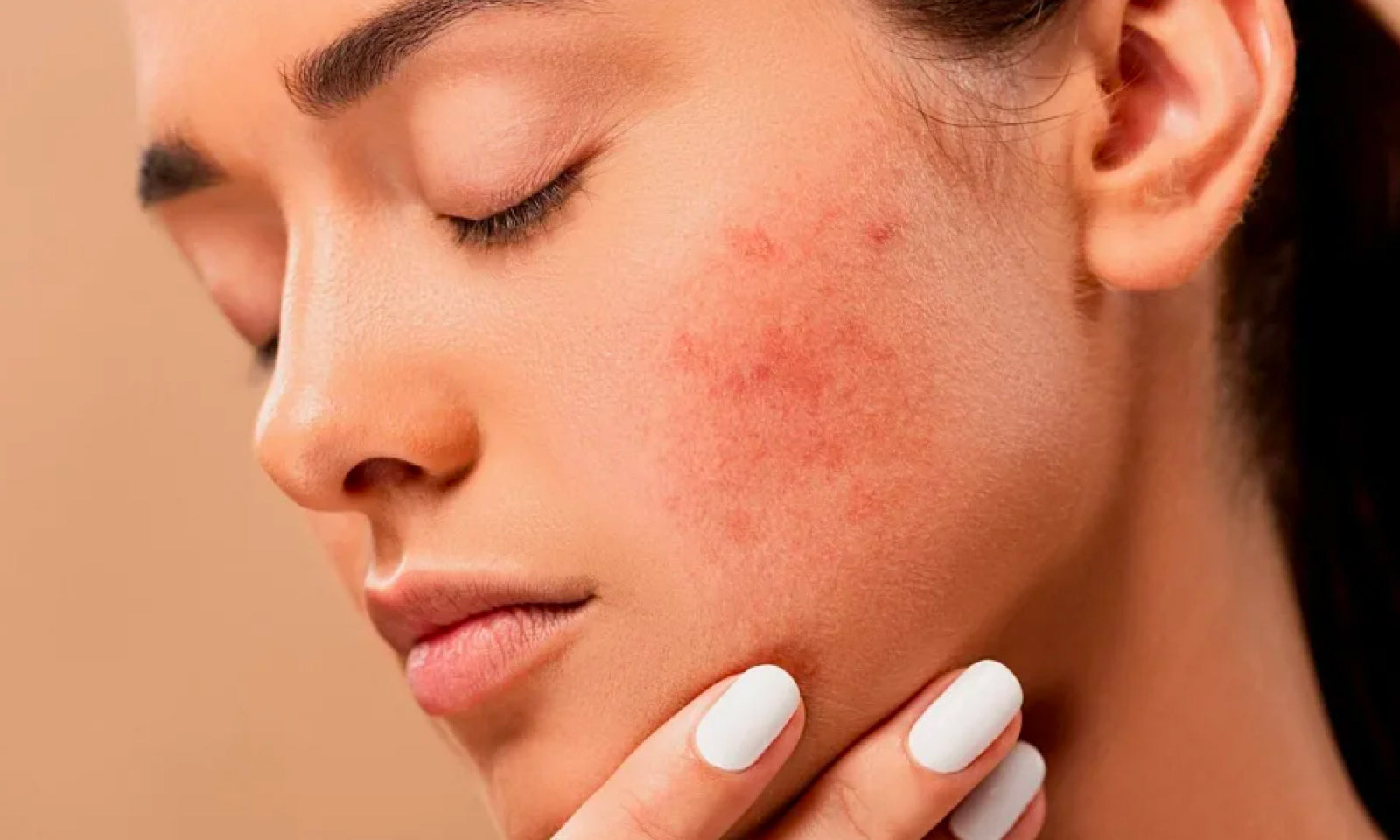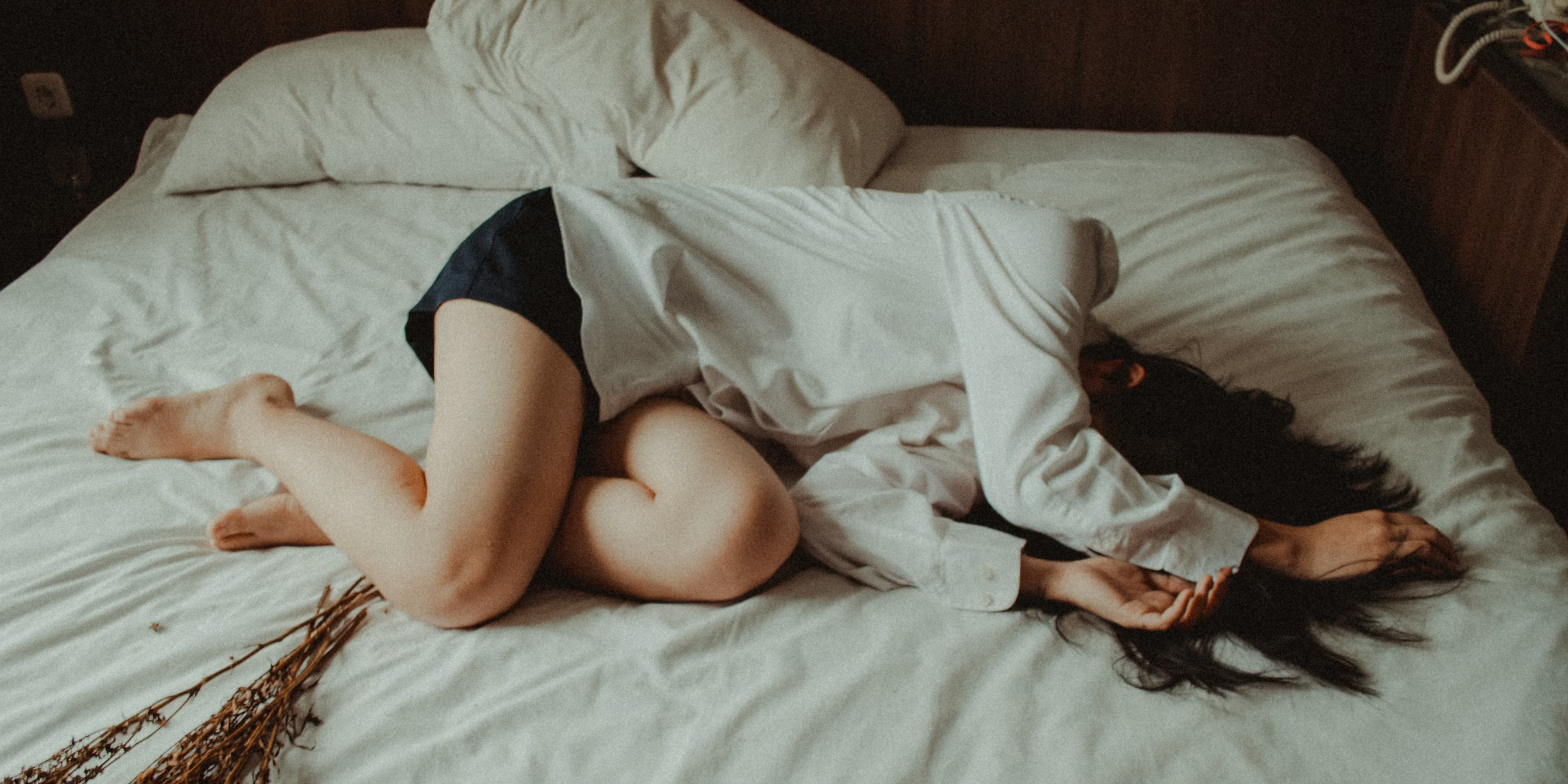Acne During Your Period? Causes and What You Can Do

During your period, you could experience cramping, bloating, mood swings and fatigue. And if that wasn’t enough to deal with, you could be prone to breakouts. A study published in the Journal of Clinical and Aesthetic Dermatology revealed that up to 65 per cent of women aged 18 and over experienced a worsening of spots and acne during their period.
So, why does it happen and what can you do about it? Let’s delve in.
In a rush? Read this quick summary:
-
Period acne looks similar to regular acne, however, period acne commonly affects the lower half of your face.
-
Acne that occurs just before your period can also be a symptom of PCOS (polycystic ovary syndrome).
-
There are plenty of over-the-counter treatments for acne, and also a few tried and tested home methods.
What causes acne breakouts during your period?
There are two main causes of period acne: stress and hormonal changes. Firstly, your hormones fluctuate throughout your cycle. These fluctuating hormones are to blame for a lot of your PMS symptoms like emotional outbursts and mood swings. Just before your period, oestrogen and progesterone levels drop and testosterone remains stable. This sudden drop in hormones can cause your sebaceous glands to produce more sebum, which can clog the pores. Clogged pores can often lead to breakouts and acne.
PMS can be stressful for some people, and we know that stress can have a huge impact on the body. But does it cause acne? Research suggests it’s possible. Stress can cause dry skin and overproduction of sebum, leading to frequent breakouts.
How does it differ from regular acne?
Regular acne and period acne will look similar, but period acne commonly affects the lower half of your face. You could also see spots on your neck, shoulders and chest as well. The timing is an important factor here. Keep a period diary and write down your symptoms, as and when they happen. If you notice breakouts around the same time each month, in the days leading up to your period or while you’re on your period, then that’s a clear sign of period acne.
Could it be PCOS?
Polycystic Ovary Syndrome is a hormonal disorder that can cause a range of symptoms like irregular periods, increased hair growth and acne. With PCOS, acne usually flares up or worsens right before a period. For some people, it can be mild but for others, it can be extremely painful and difficult to treat. If you’re experiencing period acne as well as one or more symptoms of PCOS, you should speak to your GP.
How to treat period acne:
There are a lot of over-the-counter acne treatments, but not all of them will be effective for period acne. You should try a few of these methods to find what works for you.
1. Tea tree oil
Tea tree is a natural antiseptic so it’s effective at reducing spots and blemishes. You can apply 1 – 2 drops directly to the skin, or if you have sensitive skin, you can dilute it with water first. Keep applying this 3 times a day until the spots start to go down.
2. Warm compress
A warm compress can be great for reducing swelling and drawing out pus from large and painful spots. Simply rinse a flannel in warm water, wring it out and apply it to the spot for 10 to 15 minutes.
Repeat this 2 – 3 times a day. If you see any pus leak out, clean the area and apply some antiseptic cream to prevent infection.
3. Salicylic acid
As an exfoliant, salicylic acid works by removing dead skins and unclogging the pores. It can be purchased over the counter, or you can buy a face product that contains it. Usually, you would use this once a day for the best results.
4. Diet changes
PMS can cause food cravings. Chocolate, sweets and biscuits are some of the most popular ones. The problem with these foods is they are high in sugar. And while they are usually fine in moderation, sugar can often lead to breakouts. If you notice spots popping up a day or two after you indulged in some sugary snacks, then it could be time to cut back on those. Including more anti-inflammatory foods like berries, salmon and nuts into your diet can help.
How to prevent period acne
In many cases, period acne can’t be prevented because you can’t control your hormones. But if you have PCOS, contraceptive pills can help to reduce acne. There are some oral and topical medications that your doctor can prescribe if your acne is severe and reoccurring.
Tired of leaks? Give period undies a try!
Our leak-proof period undies are a great way to give yourself some TLC and peace of mind.
Whether you need them for periods, bladder leaks or pregnancy – we’ve got you covered. Our undies are specially designed to hold up to 5 tampons’ worth of liquid, keeping you dry and comfortable all day long.
Simply wear, wash and reuse again and again. The best part? Our undies can last up to 3 years! Better for you and better for the planet.
- Tags: Periods



